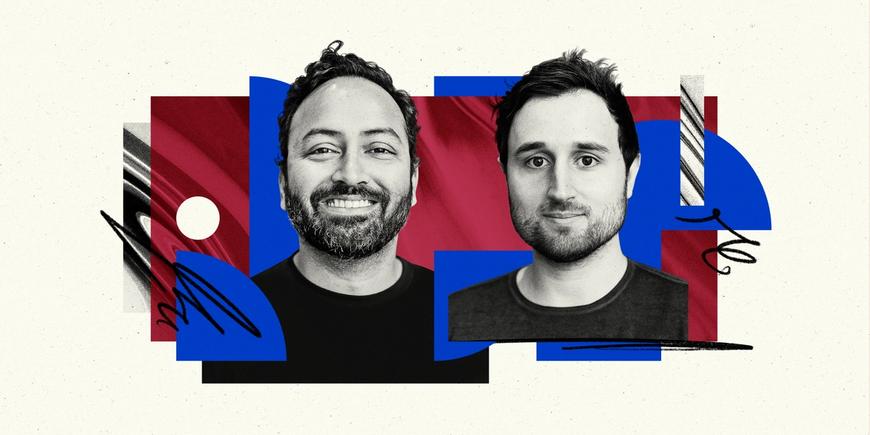Why We Invested in Maybern, the Operating System for Private Funds
We’re thrilled to be leading the Series A and to be partnering with the team on this journey.

More and more money continues to flow into the private markets. Today, private funds manage over $13T and continue to grow rapidly—averaging 20% annually since 2018. This explosive growth reflects a fundamental shift in how institutional and private capital is being deployed, with private market capital becoming an increasingly critical pillar of our global financial systems.
As funds grow, so does complexity. The bespoke nature of how deals are structured—both for individual investments as well as agreements with limited partners—means it historically has taken an army of accountants and excel spreadsheets to manage. Fund CFOs are faced with two not-so-great options:
- Try to pay top dollar to grow a large team in-house in the midst of a massive accounting talent shortage and bear all of the associated costs.
- Pay a third-party fund administrator like SS&C ($18 billion market cap) or SEI ($9 billion market cap) 6 or 7 figures annually. and then run a shadow system to double check everything in-house).
The challenges facing fund CFOs today are more acute than ever before. When we spoke to 20+ fund CFOs ranging from $1B first time fund managers to the most sophisticated finance teams with hundreds of billions under management, we heard the same pain points over and over again. Dissatisfaction with fund admins. Poor data quality and access. Lack of visibility into how things are calculated. Multi-day long turnaround times on simple questions. Frequent mistakes. High staff turnover.
All this against a backdrop where pressure is mounting on both sides. On one hand, their Managing Partners are pushing them to be more strategic—i.e. evolve beyond the operations of running the back office and deliver insights on portfolio construction and management, cost optimization, and fundraising strategy, and deliver better insights, more quickly. On the other side, LPs and internal IR teams are asking for faster, more in-depth, and more frequent reporting—leading to a constant time-suck of information retrieval and bespoke analyses.
This shift from operational CFO to strategic CFO is one that we’ve seen play out in the corporate CFO tooling world where software has emerged to streamline and automate day-to-day operational work of finance teams to allow time to be freed up to focus on strategic decision making. Many large winners have emerged from this trend including Anaplan, Blackline, Workiva, and OneStream, just to name a few. Private fund accounting however isn’t governed by standardized GAAP principles. Instead, they’re governed by their limited partnership agreements (LPAs) which not only can take many shapes and forms but are also oftentimes accompanied by negotiated side letters with preferential terms for certain investors. This complexity meant that previous attempts to build software solutions for this problem were either limited to much simpler use cases (e.g. small venture funds) or requiring tons of customization with multi-year implementation timelines.
Enter Maybern
Maybern is revolutionizing private funds with the first true operating system for fund finance. Purpose-built in partnership with the most complex funds managing billions in AUM, Maybern's core product centralizes and automates essential operations, saving finance teams hours of headache. More importantly however, the software becomes the single source of truth for all fund flows regardless of the complexity of the underlying legal structure. The core engine, designed for maximum flexibility, adapts to each fund's unique structures and workflows, handling even the most complex edge cases.
What makes Maybern particularly special was the decision to start with real estate private equity—arguably the most complex segment of the market. By solving for the most challenging use cases first, they've built an incredibly robust and flexible platform that can handle virtually any fund structure or requirement without writing a single line of custom code. They’ve quickly leveraged this advantage to win the hearts and minds of CFOs across traditional private equity, growth equity, and private credit.
There is no team that is better suited to tackle this problem. The Maybern cofounders Ross Mechanic and Ashwin Raghu initially met at Cadre, a tech-enabled private equity platform for individual investors. There, they built the internal system that allowed Cadre to multiply AUM without needing to scale headcount. Upon our first meeting with Ross, it was clear that he was deeply obsessed with this problem and determined to change this market. Although an engineer by training, he’d both personally read hundreds of LPAs and set out to learn everything there was to know about fund finance before coming to realize that it was possible to build software that could address all the edge cases and complexities, it just wouldn’t be easy. Since then, Ross and Ashwin have assembled a team of world-class engineers and fund finance specialists to tackle a problem many thought was unsolvable.
When we spoke to early customers, it became clear that Maybern would fundamentally transform how funds are run. Fund CFOs are very rarely effusive, so hearing effusive praise of the solution’s immediate transformation of internal operations and the deep expertise and credibility of the team suggested that this was clearly something special. With an internal buyer in house, it only made sense for us to put Maybern in front of our CFO, MIke Witowski, who previously had spent time at one of the largest fund admin providers. In the span of one meeting, Ross and Ashwin managed to transform his wary skepticism into astonished enthusiasm. It was at that moment that we knew this was something special.
As the private markets just get bigger and more complex, Maybern is at the center building a true enterprise grade central nervous system for fund operations. Soon, the most sophisticated private funds will run on Maybern. We’re thrilled to be leading the Series A and to be partnering with the team on this journey.
